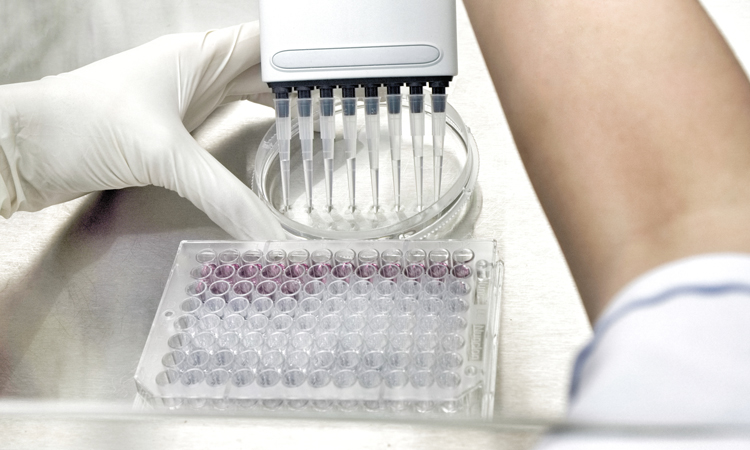Getting Past the Patent-Profit-Problem in Favour of Repurposing Drugs for Effective anti-Cancer Therapies
"We found that a surprising number of non-oncology drugs are able to kill cancer cell lines in the lab."
"We tested 4,518 compounds in this experiment in total."
"We found 49 non-oncology drugs that were able to selectively kill cancer cell lines -- killing some but not other cancers, which is an ideal property."
Dr.Steven Corsello, Dana-Farber Cancer Institute, Broad Institute of MIT, Harvard University
"[The newly-published paper] highlights the struggle to balance transparency and sharing of discoveries, with heavily patent-dependent commercialization requirements for therapies to make it to market."
Dr.Bruce Bloom, Healx, Cambridge, U.K.
 |
| Scientists at the Broad Institute and the Dana-Farber Cancer Institute identified 49 existing drugs that hold anti-cancer potential and uncovered novel targets that could direct the development of new oncology drugs. (Pixabay) |
American researchers have published a paper in Nature Cancer representing research work seen to be the largest to use the Broad Institute's Drug Repurposing Hub of which Dr.Corsello is the director and who led the research. Comprising a collection of over 6,000 sample drugs and compounds either approved by the U.S. Food and Drug Administration or they have been through early-stage clinical trials to prove they are safe for use in people.
In the testing carried out by the researchers to determine whether there are cancer-fighting properties in the drugs, close to 50 drugs meant to treat conditions other than cancer, out of a total of 4,500 non-cancer drugs were found to have some cancer-killing capabilities. The drugs were tested by the researchers on over 550 different cancer cell lines. This type of testing was previously done at a time when researchers grew cell lines one at a time to test each drug individually.
Thanks to new research and technical advances in the use of DNA bar codes -- introducing unique snippets of DNA with a virus to label the cell lines -- used, a technique that enabled the researchers to pool the cell lines with the effect of cutting short the time required to screen, the process was vastly expedited. Four of the drugs were selected for the purpose of more testing, in an effort to fully understand just how they are able to attack and destroy cancer cells.
 |
Of the drugs, one included a diabetes treatment drug, another for inflammation, and a treatment for alcohol abuse, and finally, one for treating canine arthritic pain. The drugs proved to attack cancer in various ways; with the drug tepoxalin developed for use in people but later approved for treating osteoarthritis in dogs attacking a target called MDR1 expressed on the surface of cells that protects them from the effects of chemotherapy.
High levels of this protein often show up in cancer patients who develop resistance to chemotherapy. Chromosome 16, which commonly occurs in some breast cancers showed activity in cancers lacking a portion of chromosome 16 when exposed to Antabuse, a drug approved for the treatment of alcohol dependence. A compound originally developed for the treatment of diabetes, vanadium -- and levonorgestrel, a hormone used in contraceptives also showed anti-cancer properties.
Animal studies on some of the drugs to determine which have the best chances of success in a clinical trial are being planned by Dr.Corsello's research team. An even greater number of drugs are bent for future testing for possible anti-cancer properties. In limited instances where the drug appears sufficiently promising, the treatment could be brought speedily into clinical trials on cancer patients, suggests Dr.Corsello, but he believes it likelier that identification of new and unexpected molecular targets leading to cancer treatments will be revealed.
Dr.Bloom, representing Cambridge, U.K.-based Healx, a company using artificial intelligence to discover drugs for rare diseases, agrees that new drug targets and the mechanisms of action identified by the researchers in their paper published in Nature Cancer, could be valuable, both for new treatment approaches and for repurposing older drugs.
There is a reminder in all of this of the patent-protection and profit side of researching and producing new drugs, according to Dr.Bloom, that while the data support non-oncology drugs to be repurposed to oncology and even more discoveries could result, the disclosure of specific drug names and targets might complicate pharmaceutical companies in protecting future repurposed and new treatment discoveries.

Labels: Cancer, Disease, Health, Medicine, Pharmaceuticals, Research

0 Comments:
Post a Comment
<< Home